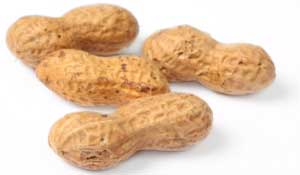Food Allergy Advice for Pregnant Mothers

It would be nice for once if the advice doctors gave their patients made sense and didn’t seem to change all the time!
I admit as a food allergy specialist I am as guilty as my colleagues in being fooled by what seems obvious. In this case, nut food allergy is the canary in the coal mine. For years allergists with (what seemed like) logic on their side advised pregnant mothers with allergic histories to avoid nuts during pregnancy, while breastfeeding and, of course, in their child’s early infancy. This with the hope of banishing the chance of peanut and nut allergy in their child.
In this week’s JAMA Pediatrics, researchers are reporting the opposite:
The more nuts women ate in pregnancy, the less likely their child was to be allergic to nuts.
There are studies showing that avoiding nuts in pregnancy actually increases the child’s risk of nut allergy. This is a complete turn around from the American Academy of Pediatrics position in 2000, where they recommended pregnant women avoid peanuts and tree nuts while pregnant, nursing and to avoid exposing their children to peanuts and nuts until age 3.
Is There Any Medical Logic to This New Recommendation?

Actually, there are some recent studies that help us to see that we were looking at this problem the wrong way.
Dr. Gideon Lack MD, a pediatrician in England, has shown interesting data comparing Jewish children with peanut allergy in London, New York, and Israel. He found that Israel had significantly less peanut allergy than their comparable peers in New York and London.
Dr. Lack attributed the difference to the fact that Israeli mothers typically give their infants Bamba, a snack with a type of nut paste. The thinking is that by introducing the nuts and peanuts at an early age, immune tolerance is induced and makes the child less likely to develop nut allergies later in childhood.

Interestingly, this concept is being seen in other types of allergies. For example, animal allergy studies are showing that if an infant is exposed to an animal, dog or cat, early in life, they are less likely to become allergic. After the age of 3, the child’s immune system is on the course of either developing allergies or not.
The longer I practice medicine at Mitchell Medical Group the greater respect and awe I have for studying societies that have figured out the answers to medical problems we encounter. In many cases, we don’t need a magic pill, what we need is a lifestyle that promotes awareness and healthy living.
Dr. Dean Mitchell M.D.
Mitchell Medical Group, NYC & Long Island
